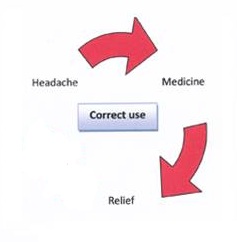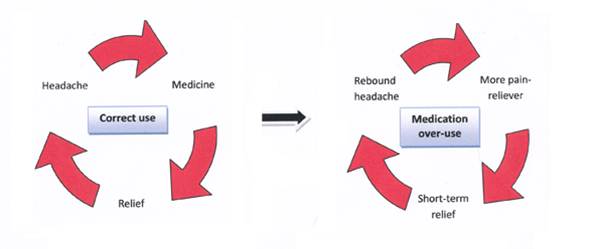Headache is a common problem. Almost 20% of men and 40% of women in the USA experience recurrent headaches. Headache is the most common reason for a neurology office visit, the third most common cause of missed work, and the seventh most common reason for a primary health care visit.
Headaches are broadly divided into two categories: Primary headaches, such as migraine and tension headache, are most common. Secondary headaches are symptoms caused by other diseases, some of them serious like a ruptured aneurysm, brain tumors, acute glaucoma or vasculitis.
Most headache sufferers are using abortive medication as needed every time they experience the symptom:
Some are taking prescription medications such as triptans or drugs containing butalbital (such as Fioricet (c) or Esgic (c)).
Many more are using over the counter medications such as acetaminophen, ibuprofen or combination pills such as aspirin/acetaminophen/caffeine (Excedrin (c)).
This strategy can work, particularly for infrequent headaches, such as once or twice a week.
However, more frequent use of these medications, particularly short-acting triptans (such as sumatriptan) and drugs containing caffeine and butalbital, can lead to rebound headache, which leads to more medication use and more headaches, culminating in chronic daily headache from transformed migraine.
The only way to deal with this is to temporarily stop the offending abortive drug and start a daily preventative drug. This will lead to short period of drug withdrawal, when the headaches may get worse before they ultimately get better. This can sometimes necessitate short term headache infusions with dihydroergotamine (DHE) or a course of steroids.
Any headache sufferer who finds themselves in this situation should consult with a neurologist or other headache specialist.


